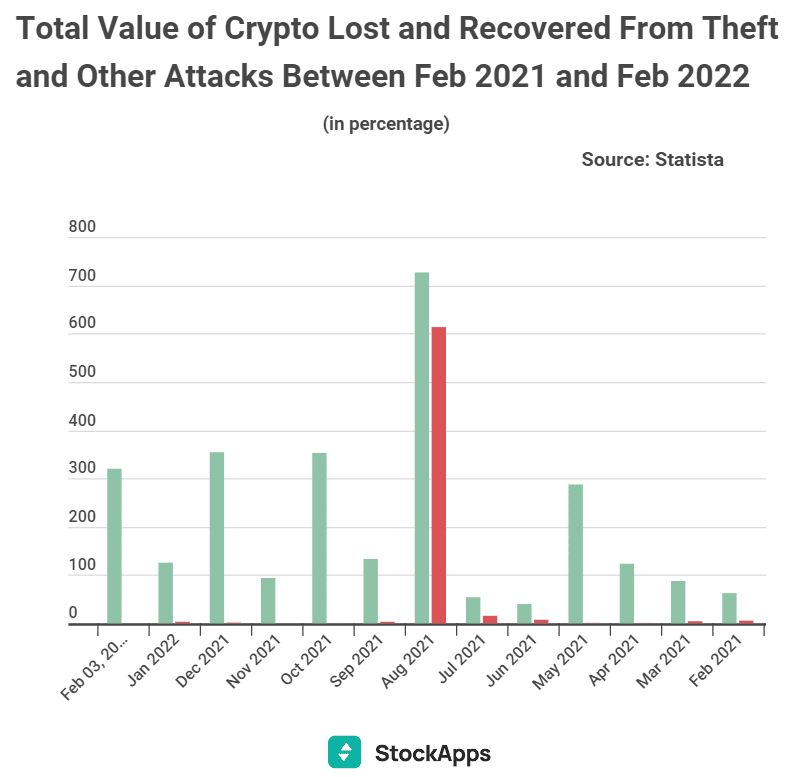
Due to its decentralized nature, cryptocurrency is often associated with crime and illegal activities. Eastern Europe, in particular, has been identified as a hotbed for such activities. According to StockApps.com, the region is a fortress of risky crypto transactions worldwide. Eastern Europe records the highest number of risky Crypto transactions globally at 6.1%.
Speaking on the data, StockApps analyst Edith Reads said. “Cryptocurrency is still in its early days, so it’s no surprise that a lot of risky transactions are taking place. However, Eastern Europe seems to be particularly susceptible to these activities. This could be due to a number of factors, including the region’s history with organized crime and corruption.”
Reads went on to say that “cryptocurrency is often seen as a way to launder money or finance illegal activities. That’s because it’s relatively easy to send and receive payments using digital currencies anonymously. As such, it’s important for investors to be aware of the risks involved in investing in cryptocurrencies.”
The Shady World of Cryptocurrency Fraud
The crypto industry lacks a structure of regulations and legal protection. Fraudsters capitalize on the gap to hit investors severely. Besides, it is cumbersome for law enforcers to track worldwide fraud syndicates.
Crypto criminals have devised a way to remain low-key. They engage in minor scams targeting different victims who are spread globally. Because the cons are small, they don’t hit the headlines. Thus, the national authorities rarely notice them. Talk of scammers enjoying economies of scale! They don’t escalate their fraud to a level that attracts investigators’ attention to commit resources.

Ponzi schemes have been on the rise in recent years. Most of them use Bitcoin (BTC) or other digital assets as investment vehicles. Madoff Investment Securities is one of the most popular Ponzis. The company promised investors unrealistically high returns, which turned out to be unsustainable.
Stopping Crypto Menace
Several recommendations can help reduce the risk of being a victim of cryptocurrency scams.
First, people should be very careful when sending or receiving payments in digital currencies. They should ensure they know and trust the person or organization they’re dealing with.
Second, avoid using online wallets to store your digital currency. These wallets are more vulnerable to hacks. If you must use one, make sure to use a reputable service.
Third, don’t click on links in emails or other communications from people you don’t know. These could be phishing scams designed to steal your digital currency.
Lastly, people should be aware of the signs of a scam. For instance, if someone promises guaranteed returns from investing in digital currency, that’s a red flag.

Question & Answers (0)